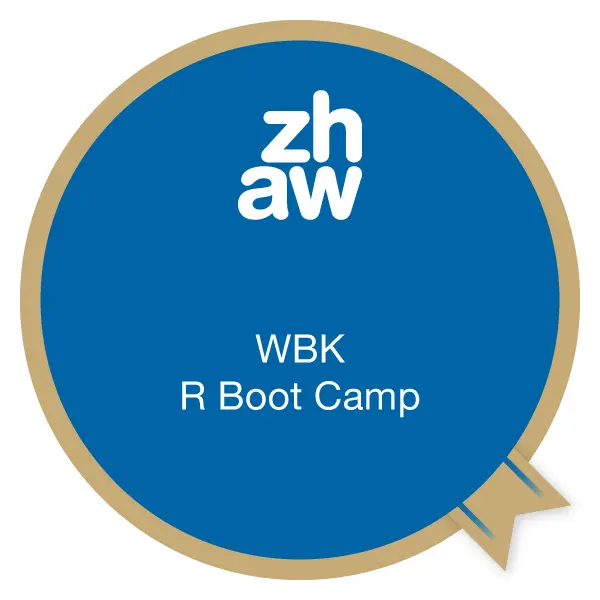The ZHAW is shaping the future of education

Practice-oriented education in the digital age not only entails teaching what’s relevant but also reshaping access to and recognition of education.
As an application-focused university, the ZHAW focuses on innovative teaching methods that are compelling in terms of both form and substance. Massive Open Online Courses (MOOCs) are an excellent example of this. Nearly 20,000 people around the world have attended the ZHAW MOOCs on edX. The courses provide modern and flexible way of accessing high-quality education. The most recent example is the MOOC “Hindernisfreie Didaktik” (barrier-free didactics), which helps make education even more accessible by conveying strategies for inclusive and adaptable learning. Digital learning formats aren’t the only thing that’s becoming more and more important. How the acquired skills are certified is also increasingly relevant. This is why in the spring semester of 2023, the ZHAW awarded open digital badges for the first time. As a part of a successful pilot project, these digital certificates were issued for two training courses run by the ZHAW School of Engineering, which are recognised and valid in the digital realm. Open digital badges, for instance, can be easily placed on LinkedIn and verified by potential employers.
Taking charge
The latest advancements in digital education were highlighted at the event Open, Micro, Digital Platforms – Hype or the Future of Higher Education? in September 2023. Open digital badges, or micro-credentials, were a key focus at the event. Such concise, targeted and certified learning opportunities have become increasingly popular. With this, however, universities are more and more moving into the realm of digital platforms. It is thus all the more essential to enter into cooperations, such as the ZHAW’s collaboration with edX. The university also needs to continue to innovate and advance its teaching models. By combining innovative models of education with international collaborations, the ZHAW is not only adapting to current trends but also actively shaping the future of education. This approach provides professionals and students with equally relevant and practice-oriented learning opportunities.